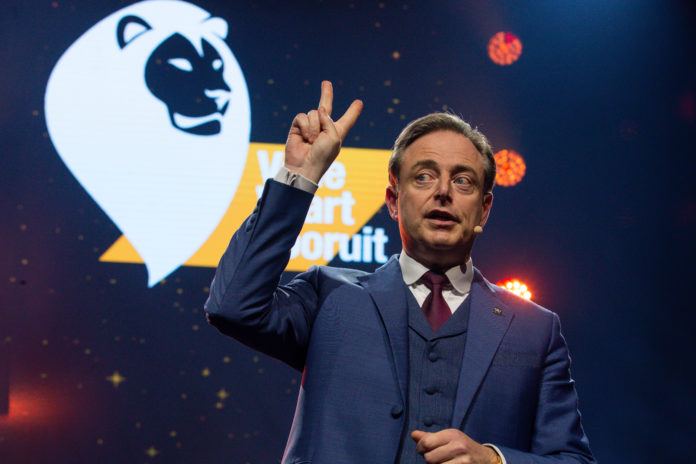Belgian political parties' exorbitant spending on social media campaigns have raised questions about where the money comes from and how appropriate its use is in the run-up to elections.
Citizen's Assembly 'We Need To Talk' will present 34 recommendations to Parliament on Wednesday in a bid to control and ultimately reduce the amount of government subsidies that currently fund Belgium's top political parties. The overall figure reached €75 million in 2021, which is twice as much as in Denmark, Germany and Sweden, and four times as much as in the Netherlands.
"We expect politicians to tell us which of our recommendations will be implemented and which recommendations will not be implemented. And we want an explanation for the recommendations that do not make it," spokesperson Ben Eersels told De Morgen.
It is widely hoped that an agreement can be found before elections take place in June. "I remain optimistic," said MP Jan Briers (CD&V). "We promised We Need To Talk we would come up with something. So we must keep our word."
Where does the money come from?
Political party financing is regulated by the Dhoore Act (1989), which came into force when it was revealed that Agusta, an Italian company, promised millions of Belgian francs in support of political parties if they approved a government purchase of Agusta helicopters.
Since then, government subsidies constitute 80% of party funding. A federal grant (44%) is handed out in a lump sum, and the rest depends on the amount of federal votes the party received. There is also an additional amount if the party has a seat in the Senate. The rest is made up of a regional grant (0.9% for Dutch-speaking parties, 7.1% for French-speaking parties) and a "faction grant" (intended for parliamentary activities).
Other income sources include membership fees and donations. Non-governmental sponsors may donate a maximum of €2,000 per year and legal entities such as companies are forbidden from donating.
It is We Need To Talk's ultimate aim to improve the regulation and transparency surrounding party financing given that the current legislation is over thirty years old.
Outdated rulebook
The organisation believes the question is a pressing one in the current electoral context, with Belgians heading to the ballots on 9 June. A "black-out period" comes into force in the four months preceding elections – in this case from 9 February – and this constitutes the only time when party expenses are regulated. There is a ban on several activities such as providing free food and drink or using billboards for posters, but We Need To Talk points out that legislation does not contain any rules regarding advertising in the digital realm.
Belgium's tendency to spend big on online advertising is already the subject of political debate. Belgian political parties were the twelfth-highest social media spenders in Europe in 2021, and three of them featured in the Continent's top ten: conservative Flemish party N-VA came first, far-right Flemish party Vlaams-Belang came fourth, and the left-wing Belgian Worker's Party (PTB-PVDA) came seventh. Belgian parties collectively spent €6 million on online advertising 2023, up from €5 million the previous year.
Flemish socialist party Vooruit has tabled a bill on an outright ban on online advertising during the electoral "black-out", while the Belgians Greens (Ecolo/Groen) have advocated for a spending limit of €1 million. The Workers' Party (PTB-PVDA) leader Raoul Hedebouw, however, is against such measures. "We have to live with the times. It is normal for parties to invest in social networks to communicate their ideas to the population," he has stated in the past.

